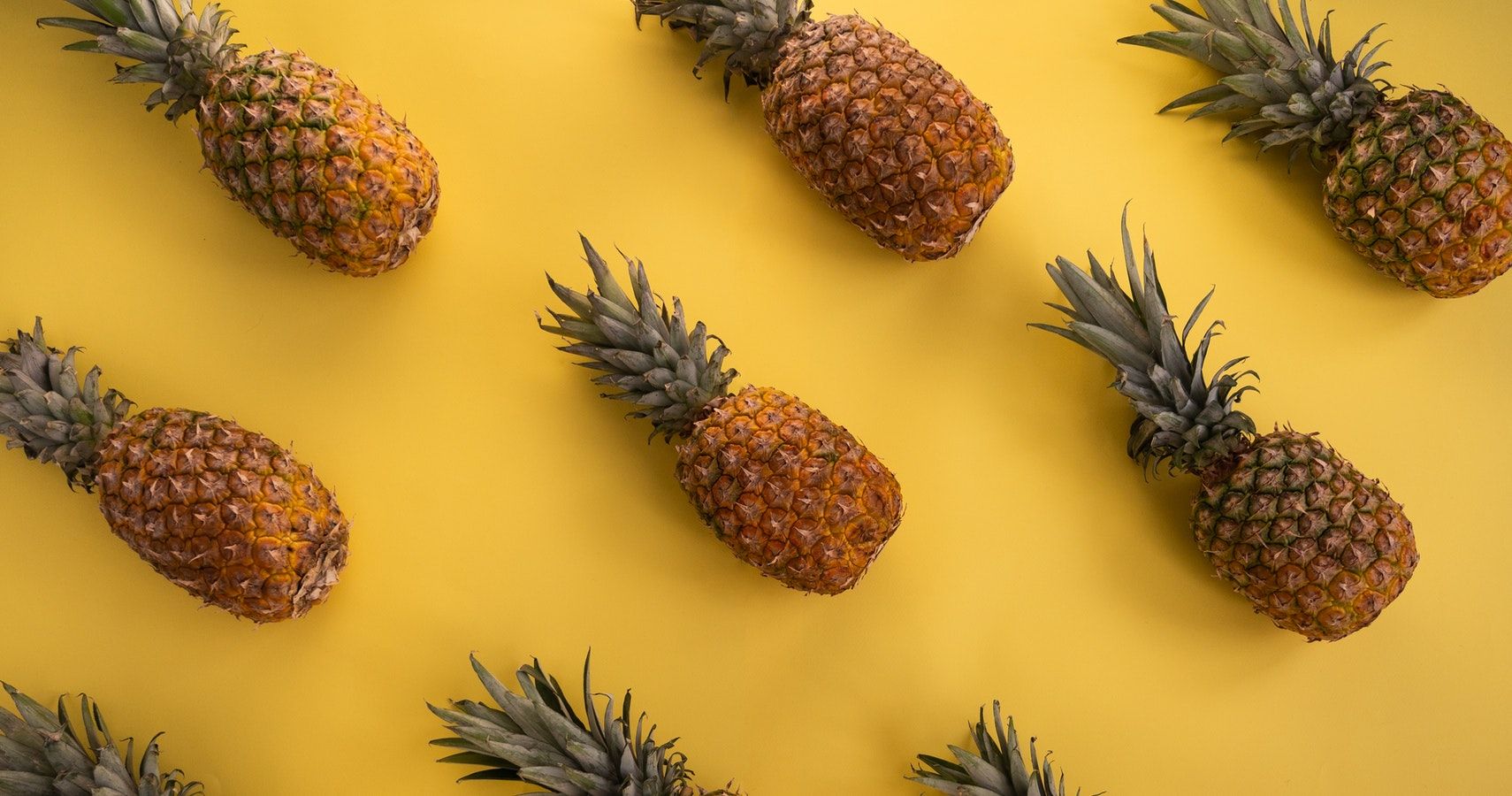When it comes to being overdue, pregnant women will try just about any natural ways to induce labor, especially if it can be done via the food they love to eat. Because of this, pineapple has become a very popular produce for those who are in week 39, 40, or 41 of their pregnancies, given that many have heard that it jumpstarts contractions. And for those people that it has worked for, it may be psychological, coincidental, or something of the like, as unfortunately, pineapple is not responsible for inducing labor.
Many old wives' tales exist that revolve around pregnancy, according to Today's Parent. Several revolve around what can be done to stimulate labor, likely because when those foods were tried, contractions occurred shortly thereafter making women believe that the food finally got labor started. More likely, what happened was that because women were already overdue in their pregnancies, it did not matter what was eaten as labor was going to begin regardless. But, when desperation sets in and women are done being pregnant, if there is the slightest bit of truth to the wives' tale, as long as it is safe, it will be tried.
Here is why pineapple will not induce labor
Theory Behind Pineapple Causing Induction
Besides being a delicious summer fruit that is enjoyed by young and old alike, pineapple is known for having the enzyme called bromelain. This enzyme is found in pineapple juice and the pineapple stem, according to WebMD. And while the properties of bromelain are known to begin reactions in the body to reduce inflammation and pain, many swear by its ability to begin contractions as well.
According to What To Expect, the bromelain found in pineapples is thought to soften the cervix and begin contractions if eaten around the time when babies are due. The thought is that if there is a digestional distress, such as what can occur if a large amount of pineapple is eaten in one sitting, the distress will cause the cervix to contract. And given that babies are already overdue, the beginning of contractions from bromelain can cause women to go into labor with their babies being born just hours after the consumption of the pineapple.
What Research Says About Eating Pineapple During Pregnancy
Researchers are not ecstatic to do medical trials on pregnant women when it is not necessary. As a result, there have been very few studies completed with pregnant women eating pineapple or drinking pineapple juice and whether delivery is induced as a result.
Likely, the belief that pineapple can start contractions came from a few small studies that showed when bromelain is applied directly to the cervix, small contractions do occur. However, the studies that were conducted on women were those who were not pregnant and suffered from reproductive conditions, according to ScienceDirect.
The only studies conducted during pregnancy were done on pregnant mice. However, much like a 2015 study, published in the Nigerian Veterinary Journal, most mice were not given pineapple or pineapple just. They were just given bromelain instead. And the results of the studies were that small uterine contractions were only caused when bromelain was directly applied to the uterus.
Safety Of Eating Pineapple During Pregnancy
While there is bromelain found in pineapple, it is such a small amount per serving that pineapple is determined to be a safe food, according to Healthline. In fact, per the publication, pineapple contains vitamins and minerals that are important for supporting pregnancy and aiding in the development of babies.
Outside of bromelain, pineapples also contain folate, vitamins C and B6, iron, and more, per Healthline. As such, they can be included in the daily diet of mothers-to-be. However, having too much pineapple should be avoided to keep from having feelings of nausea or upset stomachs.
The bottom line is, pineapple can be enjoyed during pregnancy. But, if it is being eaten specifically to induce labor, it, unfortunately, will not have any effect on moving labor along.
Source: Today's Parent, WebMD, What To Expect, ScienceDirect, Nigerian Veterinary Journal, Healthline

